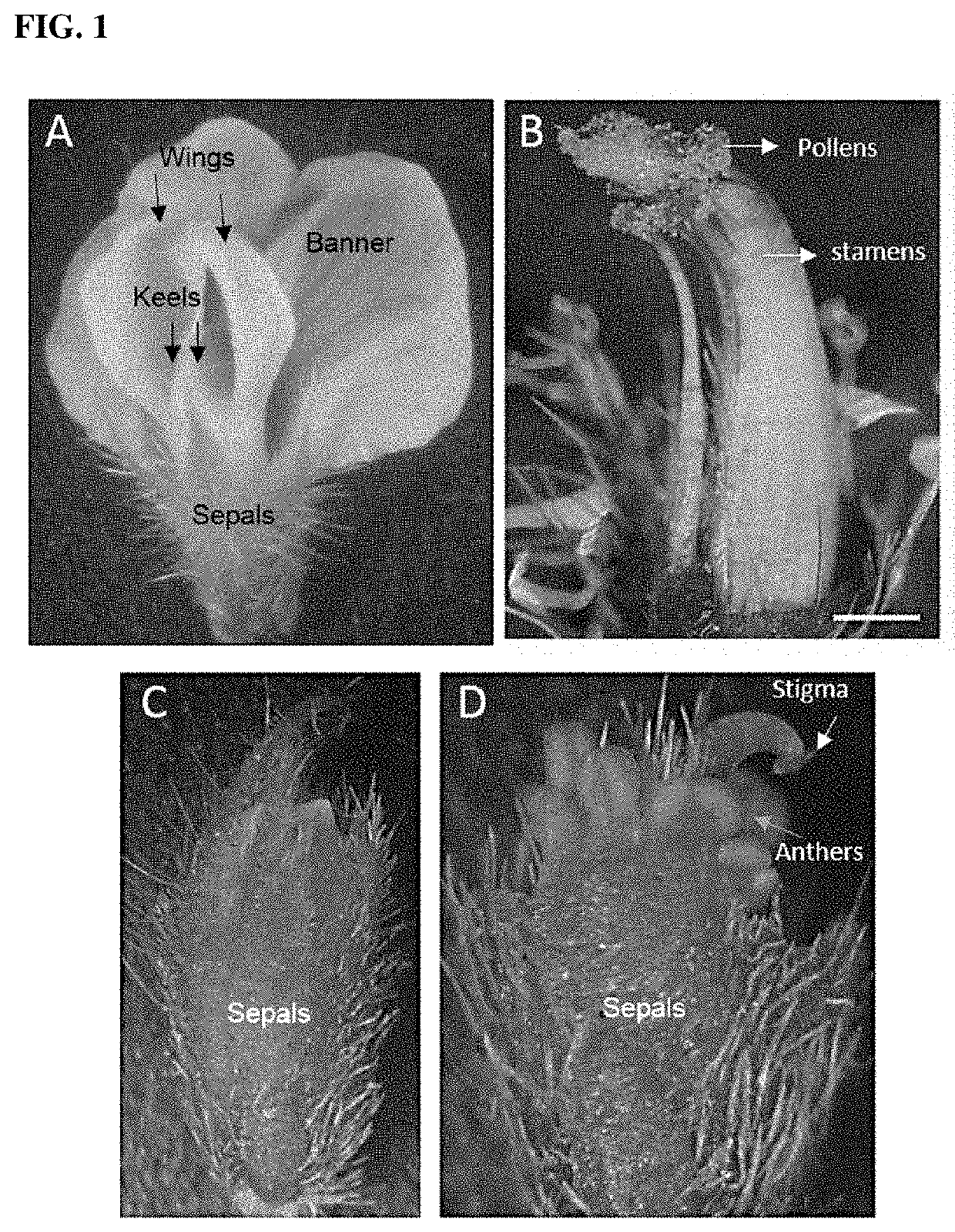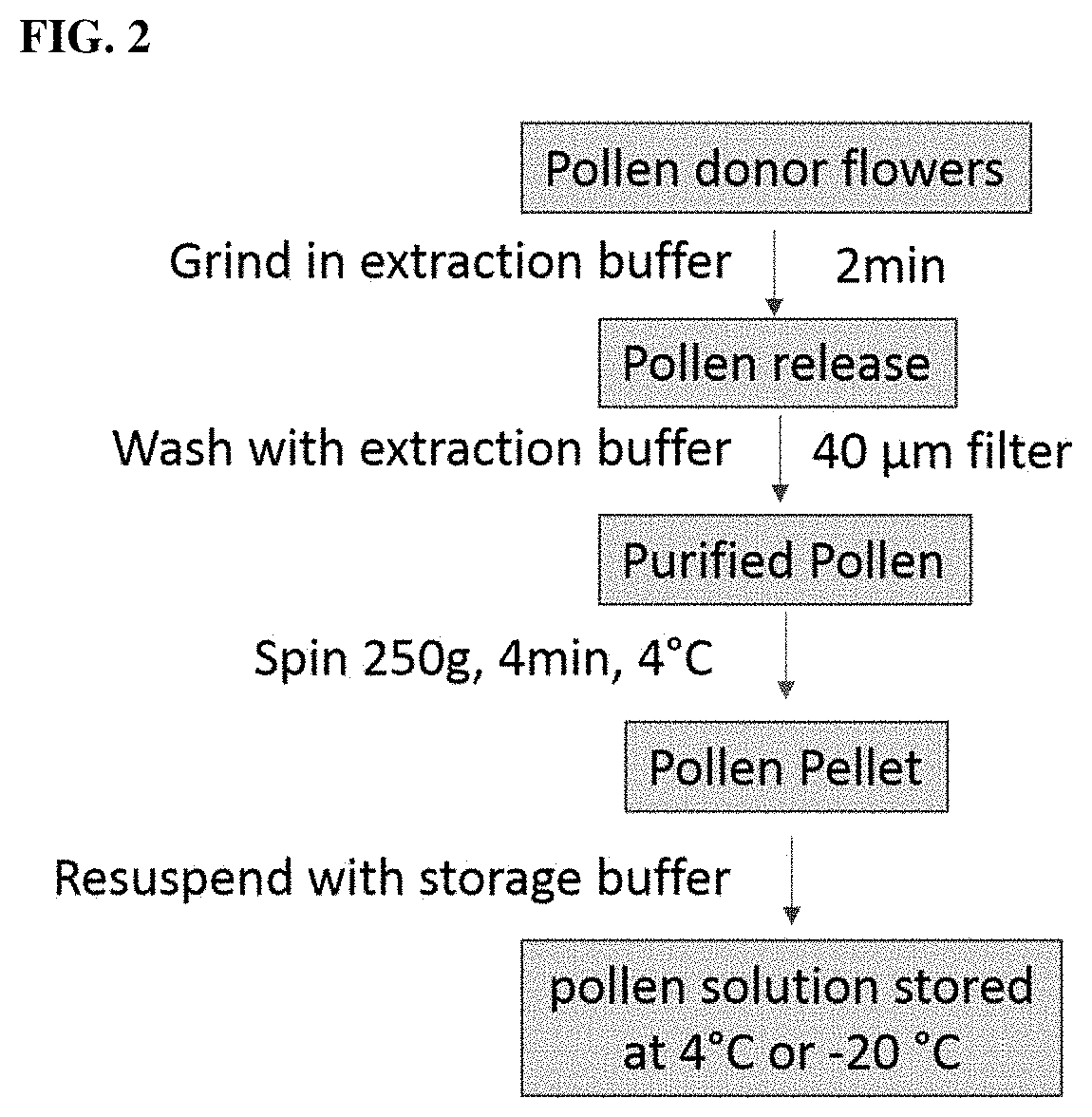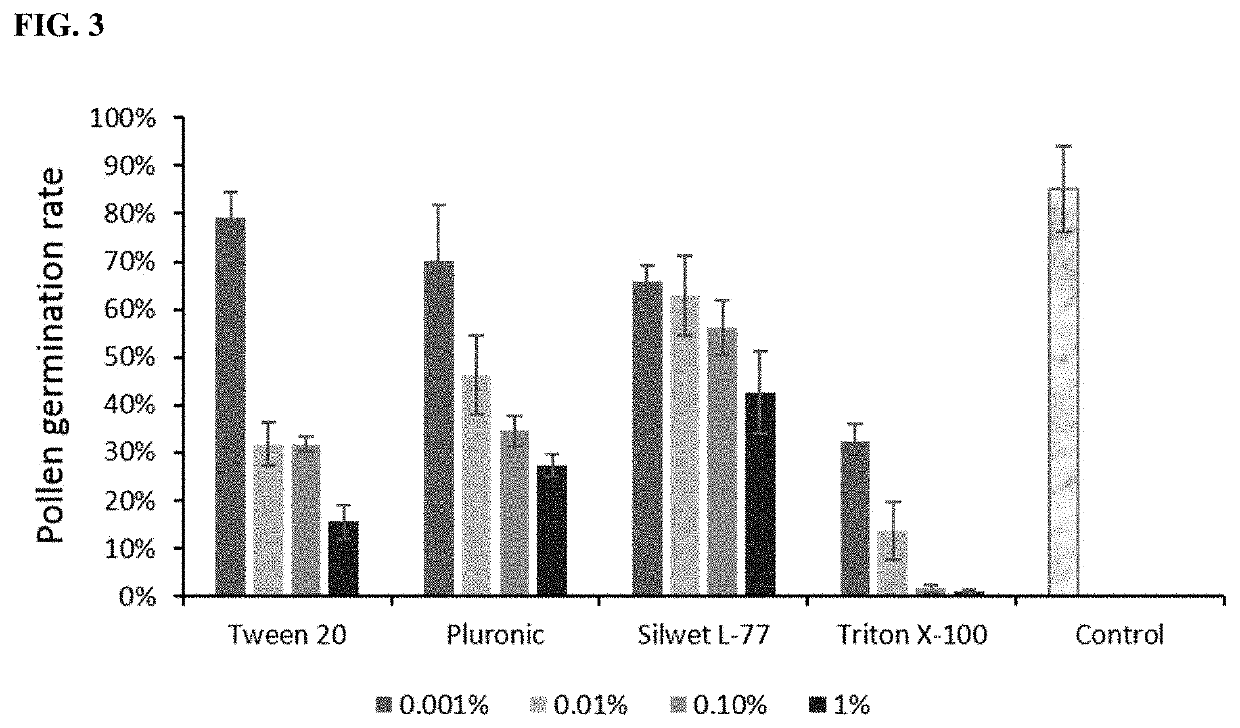Cross pollination through liquid-mediated delivery of pollen to enclosed stigmas of flowers from recipient plants
a technology of cross-pollinating and flowering, applied in the field of agricultural biotechnology, can solve the problems of complex process, male sterility, time-consuming and laborious, etc., and achieve the effect of facilitating the selection of said progeny plan
- Summary
- Abstract
- Description
- Claims
- Application Information
AI Technical Summary
Benefits of technology
Problems solved by technology
Method used
Image
Examples
example 1
Methods for Collection, Purification, and Storage of Pollen
[0037]In some plants, especially soybean, it is difficult to collect pollen due to the size and structure of the flowers. In addition, soybean pollen grains are relatively small in size (about 26 μm) and are present in relatively small quantities in a single flower (approximately 3000 to 7000 pollen grains / flower) (Palmer et. al., 1978). To meet the needs for large-scale pollination using the methods described herein, a liquid-based platform may be developed to optimize the collection, purification, and storage of donor pollen. This includes the steps of disruption of collected flowers (for example, by grinding or by homogenizing with or without liquid using a bead mill homogenizer) to release pollen, filtration of the disrupted flowers to purify the released pollen, collection of the purified pollen by centrifugation, and resuspension of the purified pollen a solution that is suitable for storage or for use in liquid pollin...
example 2
nt of Solution for Delivery of Pollen
[0039]For liquid pollination of plants, pollen grains obtained from a donor plant can be mixed into a liquid solution to facilitate delivery into the flower bud. The components and their concentrations in the pollen liquid solution are important to the efficacy of the solution, as they influence not only the pollen viability itself but also the success rate of hybrid seed set in pollinated plants. However, while efficiency can be improved by optimization of the components and concentration in a given pollen solution, numerous substitutions and modifications are possible while still achieving pollination as illustrated herein below in Table 1.
TABLE 1Measures of pod-set success rate when pollinating using various pollen solutionsPod-setSuccessPollen SolutionRateConventional cross-pollination60%5% sucrose 0%10% sucrose29%15% sucrose18%20% sucrose33%25% sucrose 0%20% sucrose, 0.04% xanthan gum, 0.01% Tween 2040%20% sucrose, 0.04% xanthan gum, 0.05 U / ...
example 3
diated Pollen Delivery in Soybean Plants
[0045]A suitable liquid-mediated pollen delivery method was evaluated by a dye inspection method using soybean flower buds. Injection buffer (20% sucrose, 0.04% xanthan gum, 15 U / L PME, 0.001% Tween 20 and Allura Red AC 0.01%) was delivered into hooded flower buds by inserting a syringe needle at the bending point of longest sepal and injecting the buffer until excess liquid oozed out. Five minutes after injection, the flower buds were dissected to inspect the red stain on the stigma. The red stain on the stigma indicates that the administered liquid successfully made contact with the stigma (FIG. 5D).
[0046]Based on the results obtained from experiments testing the individual components, it was determined that beneficial components for a solution for pollen delivery in soybean include, but are not limited to, the following components: xanthan gum: 0.04%-0.08% (w / v); sucrose: 10-20% (w / v); PME: 0.01-10 mg / L; and Tween 20: 0.001%-0.01% (v / v). Th...
PUM
 Login to View More
Login to View More Abstract
Description
Claims
Application Information
 Login to View More
Login to View More - R&D Engineer
- R&D Manager
- IP Professional
- Industry Leading Data Capabilities
- Powerful AI technology
- Patent DNA Extraction
Browse by: Latest US Patents, China's latest patents, Technical Efficacy Thesaurus, Application Domain, Technology Topic, Popular Technical Reports.
© 2024 PatSnap. All rights reserved.Legal|Privacy policy|Modern Slavery Act Transparency Statement|Sitemap|About US| Contact US: help@patsnap.com










